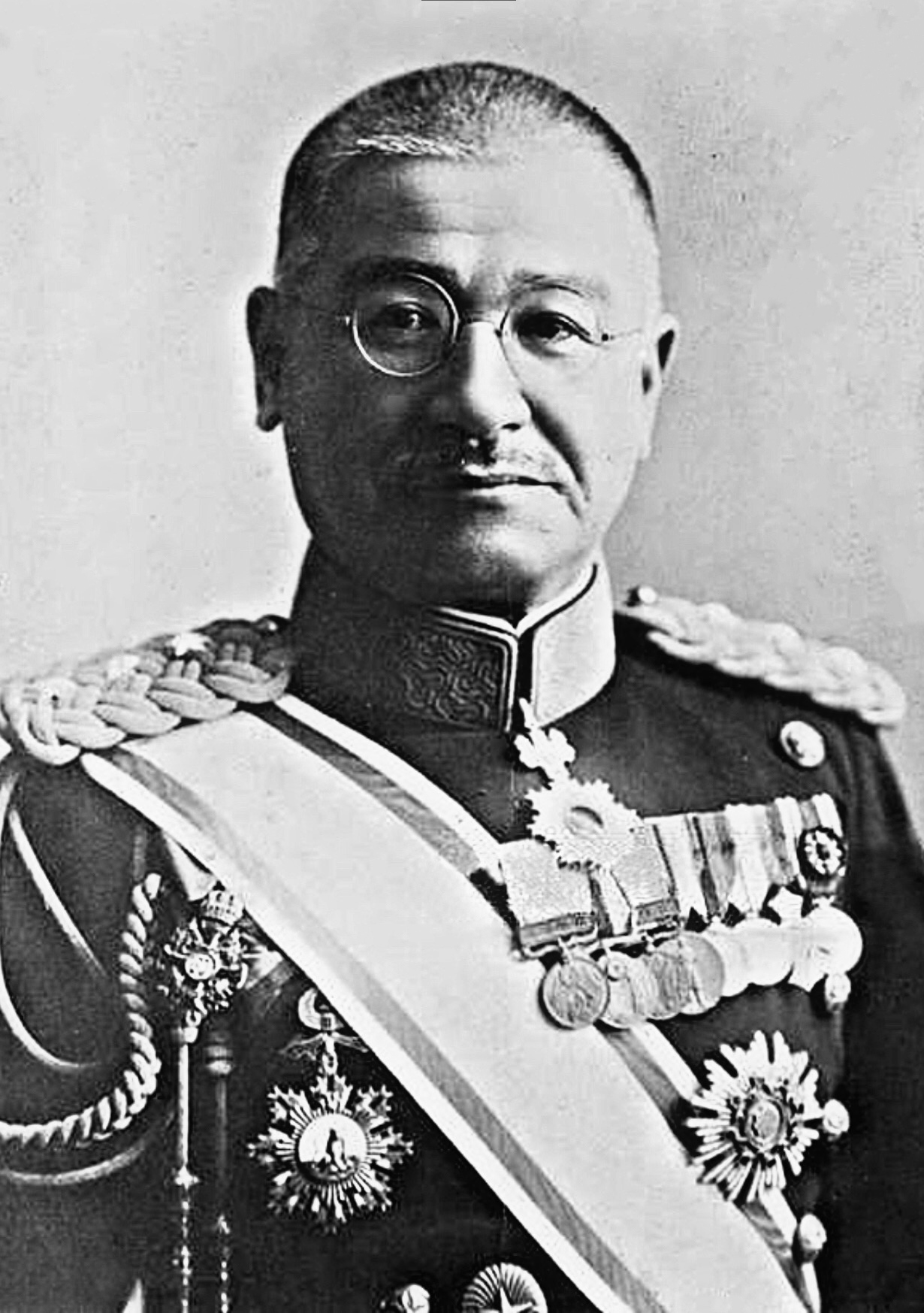Nobuyuki Abe
| Abe Nobuyuki | |
|---|---|
| 阿部 信行 | |
 |
|
| Prime Minister of Japan | |
|
In office 30 August 1939 – 16 January 1940 |
|
| Monarch | Shōwa |
| Preceded by | Kiichirō Hiranuma |
| Succeeded by | Mitsumasa Yonai |
| Governor General of Korea | |
|
In office 22 July 1944 – 12 September 1945 |
|
| Monarch | Shōwa |
| Preceded by | Kuniaki Koiso |
| Succeeded by | Position abolished |
| Personal details | |
| Born |
24 November 1875 Kanazawa, Japan |
| Died | 7 September 1953 (aged 77) |
| Political party | Taisei Yokusankai (1940–1945) |
| Other political affiliations |
Independent (Before 1940) |
| Alma mater |
Imperial Japanese Army Academy Army War College |
| Profession | General |
General Nobuyuki Abe(阿部 信行 Abe Nobuyuki?, November 24, 1875 – 7 September 1953) was a general in the Imperial Japanese Army, Governor-General of Korea, and 36th Prime Minister of Japan from 30 August 1939 to 16 January 1940.
Incorporates information from the corresponding article in the
Abe was born into an ex-samurai family in Kanazawa city, Ishikawa Prefecture. His brother-in-law was Imperial Japanese Navy admiral Shigeyoshi Inoue.
Abe attended Tokyo No.1 Middle School (Tokyo Metropolitan Hibiya High School) followed by No.4 High School. While still a student, he volunteered for military service during the First Sino-Japanese War.
After the war, Abe graduated from the Imperial Japanese Army Academy in November 1897. Commissioned a second lieutenant the following 27 June, he was promoted to lieutenant in November 1900 and attended the Army Artillery School, graduating in December 1901. Promoted to captain in November 1903, he enrolled in the 19th class of the Army War College, graduating in November 1907. Ultranationalist General Araki Sadao was one of his classmates. He was promoted to major in December 1908, becoming an instructor at the Army War College in September 1909. In November 1910, he was posted to the German Empire as a military attache' at the Japanese embassy, and became a supplementary attache' at the embassy in Vienna in February 1913.
...
Wikipedia
